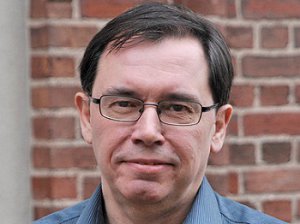
Peter Rutland
Peter Rutland is a professor of government at Wesleyan University in Middletown Connecticut
U.S. President Barack Obama's decision to cancel the September summit only deepens the mystery surrounding President Vladimir Putin's handling of the Edward Snowden affair. What does the sudden chill in U.S.-Russia relations mean for Snowden's chances of being granted permanent asylum in Moscow?
Why did the usually decisive Putin wait 38 days before granting refuge to Snowden, who he said arrived in Moscow "like an unwanted Christmas gift?"
Putin's unusual reticence was attributed to his desire not to offend the U.S. The problem with that explanation, though, is that there is plenty of evidence to the contrary. Take, for example, last year's ban on adoptions by U.S. families was a sign that Putin has zero interest in better relations with Washington.
In Russia, as most everywhere else, all politics is local. Snowden poses a dilemma for Putin that goes beyond the sorry state of U.S.-Russian relations. Snowden was not a defector, offering secrets to Russia in return for money or sex. Rather he portrays himself as a human rights activist, speaking truth to power and appealing to global public opinion. Snowden has proven himself to be contemptuous of state control, while Putin is a control freak.
The Kremlin must be worried that Snowden might start making comments on Russia's own less-than-stellar human rights record. What are they going to do if Snowden ignores their admonitions to stay away from the media? Revoke his temporary asylum status and deport him?
Putin's political style is built on information and control. A master Machiavellian, he assiduously studies his opponents and then uses a carefully calibrated mixture of incentives to co-opt individuals into his system — or banishes them if they resist his inducements. Snowden's adolescent rebellion is not something that fits Putin's modus operandi. He is a loose cannon, a rogue player who has already broken his oath with one country's security service and would presumably have no compunction in doing it a second time.
It is possible that the Kremlin hoped to persuade Snowden to follow in the footsteps of WikiLeaks founder Julian Assange, who runs a talk show for state-controlled RT television from his temporary home in the Ecuadorian embassy in London. But this seems highly unlikely. Such a move would undermine Snowden's claim to be a true U.S. patriot and a champion of people all around the world against the encroaching security state. In any event, Snowden's personality, unlike Assange's, seems too self-effacing for a role as a Kremlin propagandist.
The record of political exiles in Russia is not a happy one. The 20th century saw a steady stream of ideological defectors who fled to the Soviet Union in the hope that it represented the radiant future or at least some sort of alternative to life in the West. In Josef Stalin's time, most of them ended up in camps or in front of a firing squad. Post-Stalin, they have either faded into obscurity or if too troublesome they have been sent back, as was the case with Lee Harvey Oswald.
In Soviet times, defectors would simply disappear behind the walls of Soviet censorship. But contemporary Russia is a much more open society, and it would be very difficult to cut Snowden off from the outside world short of arresting him.
Baring some radical change in the political climate in Moscow, Snowden's problematic relationship with the intrusive modern state may be only just beginning.



.jpg/250px-ElbeDay1945_(NARA_ww2-121).jpg)





